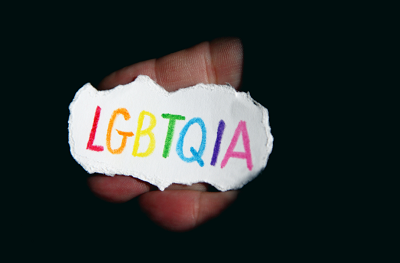An Update on LGBTQ Youth’s Mental Health (Professionals)
An Update on LGBTQ Youth’s Mental Health (Professionals)

While there has been a trend of increased anxiety and depression across youth throughout the COVID-19 pandemic, LGBTQ youth faced unique challenges. Prior to the COVID-19 pandemic, this population experienced disproportionate levels of suicidality, homelessness, and food insecurity. The COVID-19 pandemic only exacerbated this statistic. According to the latest mental health statistics from the Trevor Project’s 2021 Youth Mental Health National Survey, 42% of LGBTQ youth reported that they seriously contemplated suicide during the pandemic. Additionally, these youth experienced elevated rates of anxiety and depression due to social isolation as many were unable to further their gender and sexual identity development and expression due to a lack of accepting and affirming environments that were open during the pandemic. The Trevor Project’s 2021 Youth Mental Health National Survey also identified that 70% of LGBTQ youth who participated in their national survey noted that their mental health worsened during the pandemic, with 72% of youth reporting that they experienced symptoms of generalized anxiety disorder and 62% of youth reporting symptoms of major depressive disorder. It is common for LGBTQ youth to come out to their peers and social community prior to their caregivers due to fears that their caregivers will not be supportive or affirming. Therefore, being physically isolated in potentially unsupportive homes delayed many LGBTQ youth from coming out. The COVID-19 pandemic limited LGBTQ youth’s access to safe and accepting places for them to express their orientations and live their authentic lives. In turn, this is one factor that led to an increase in depressive and anxious symptoms among this population over the past 16 months.
Like most places of employment, LGBTQ community centers across the nation closed for in-person events and relied on outreach through social media and virtual events. While virtual platforms may have increased access to support on a geographical basis both nationally and internationally, it restricted access for youth, particularly, those who have been rejected and abandoned by their caregivers or those who are afraid their caregivers may not be accepting. It is common for pre-teen and adolescent caregivers to monitor youth’s internet and phone activity, leaving some LGBTQ youth who have yet to come out to their families or are not accepted in their home environments fearful and reluctant to access online support. This further alienated this subset of the population and intensified social isolation and lack of support. According to The Trevor Project’s 2021 Youth Mental Health National Survey, neaerly 50% of LGBTQ youth reported that they wanted to seek mental health services and were unable to either obtain or ask for counseling support. Closures during the COVID-19 pandemic also reduced access to affirming medical providers due to the reallocation of medical attention and resources. This made obtaining puberty blockers and transgender hormone therapy more difficult. The cancellation of elective surgeries delayed gender affirming surgeries which further exacerbated mental health strains due to gender identity incongruencies with physical attributions for those seeking these procedures. Closures of courts also posed greater difficulty and long delays for non-binary and transgender individuals of age to legally change their name or gender markers.
It is imperative to note that youth with compounded identities such as those who identify as Queer or Trans Persons of Color (QTPoC) experienced intensified hardships with an increase of discrimination due to race or ethnicity. The hostile political environment throughout the pandemic contributed to disempowerment and magnified oppression for QTPoC. Due to systematic racism and stigmatization of mental illness, QTPoC are less likely to receive mental health care, furthering the disproportionately negative effects the pandemic caused for this population.
Continued advocacy for LGBTQ legislature and policies is a must to help support this vulnerable population. Additionally, psychoeducation and caregiver support is necessary to decrease the mental health crisis that LGBTQ youth who do not live in affirming environments face. The Trevor Project’s 2021 Youth Mental Health National Survey found that suicidality risk was halved for youth who lived in affirming environments. Expansion of LGBTQ-affirming practices and mental health, medical, and social services is warranted to continue to combat the growing disparities that LGBTQ youth face on a daily basis with or without a global pandemic.












